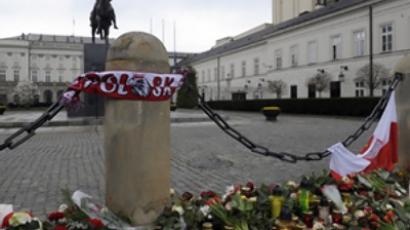Poland ready for the final presidency battle
A "day of silence" has been declared in Poland, banning any political campaigning as Bronislaw Komorowski and Jaroslaw Kaczynski face-off on Sunday, fighting for the Presidency in a second round of elections.
A clash of political heavyweights….or a choice with no choice? As Poland chooses between Bronislaw Komorowski and Jaroslaw Kaczynski for President, making the decision could prove a difficult task for the electorate. It’s not that the candidates are unknown – they’ve been around Polish politics for a long time – but their platforms seem to be almost identical. However, a former President manages to see a difference between the two.
“When we remember Kachinsky as prime-minister of Poland, his policies were not good for Poland,” said Aleksander Kwasniewski, president of Poland in 1995-2005. “It was based on some historic resentment. But now we have a very constant, very predictable politician in Komorowski who will serve Poland’s interests.”
It is rather untypical for a left-wing politician like Kwasniewski to support a centre-right candidate, but to him the two are on the opposite sides of the political fence.
In reality, the current interim president Komorowski is known to be very mild in his policies – both inside and outside Poland. Kaczynski is more nationalist and hard-line – and is popular with older voters, while former dissidents favor him for his anti-communism rhetoric. They flocked in droves for his final rally in Warsaw.
“I welcome a remarkable man on this stage,” said Marta Kaczynska, daughter of Lech Kaczynski. “And to me he’s not only remarkable because he is my uncle, but because he is the best there is for Poland.”
Jaroslaw Kaczynski is, of course, the surviving twin brother of Lech – whose death in a plane crash in Russia, with scores of Poland’s political and military elite in April, triggered this election.
The first round last month, from which the two candidates emerged, went as predicted – but Komorowski’s five percent margin of victory was smaller than expected and experts say there was little to differentiate between the pair in televised debates.
“The last debate during the parliamentary vote between Tusk and Kaczynski was decisive,” said Piotr Goretzki, TVP analyst. “It made people change their votes. This time we learned nothing new. They simply repeated their parties’ slogans, which are not so much different from each other.”
While Komorowski is still touted as favorite, what’s unknown is how strong the sympathy vote for the twin brother of the late Polish leader might be. Compared to the dull first round, this unpredictable ingredient will make for an intriguing contest to decide the presidency.
Komorowski represents the ruling party and is not expected to make major policy changes should he win. Kaczynski – should he triumph – would not even be able to, as the real power in Poland lies in the hands of the prime-minister. So experts say – despite some intrigue in the run-off – regardless of who will become the new president he would not bring major shifts to the way the country is being run.













